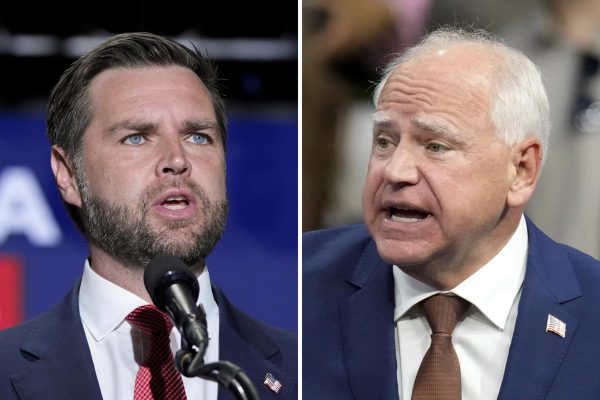The Life and Fate of Evan Gershkovich
According to the Committee to Protect Journalists, there are 363 journalists in prisons across the globe as of Dec. 1st, 2022. The most recent case to catch public attention is that of Evan Gershkovich, a reporter for the Wall Street Journal recently imprisoned in Russia on charges of espionage. Gershkovich is believed to be the first American journalist imprisoned in the country since the end of the Cold War.
Over a year into its war with Ukraine, it is interesting for Russia to now decide to worsen tensions with the U.S. in such a decisive manner. It is important to consider the setbacks the Kremlin is facing right now: Finland, one of its geographically closest neighbors, joined NATO and the U.S. arrested a string of Russian spies, including one enrolled in a master’s program at Johns Hopkins University. With all these challenges, plus the war persisting longer than Putin may have imagined, it was time for Russia to nab a “bargaining chip” for itself.
After all, that was the case with the last high-profile American held captive in Russia, WNBA star Brittney Griner. Griner was arrested in Feb. 2022, shortly before the outbreak of the Russia-Ukraine war, after going through airport security with cartridges containing hash oil. Griner pled guilty and was sentenced to nine years in prison but exchanged in December for Russian arms dealer Viktor Bout. The timing of Griner’s arrest just before the war led many to believe it was a Russian grab for political clout before chaos erupted on the world stage. While Griner’s story speaks to American success, the idea that she was arrested as a bargaining chip—meant to be exchanged—diminishes the promise of its success repeating.
Another reporter to share Gershkovich’s fate was Nicholas Daniloff, writer for the U.S News & World Report, who was arrested on Sep. 7, 1986, on espionage charges. These men faced the same charges and Daniloff was also arrested as payback after the U.S. arrested a Soviet U.N. officer. Daniloff left the Soviet Union on September 23rd without charges after pleading nolo contendere (a no-contest plea) and under the condition that a Soviet dissident be released to the West. While the similarities between these two cases are striking, the forecast for Gershkovich is not as predictable, as seen by more recent examples of Americans arrested in Russia.
Mark Fogel, arrested in August 2021 for trying to enter Russia with medical marijuana, and Paul Whelan, arrested in December 2018 on charges of spying, reveal the less star-studded perspective of Russian imprisonments. Little, if any, attention has been given to his case. Senator Bob Casey of Pennsylvania, Fogel’s home state, published a letter alongside eight colleagues after Griner’s release that called for Fogel’s release as he is being held under similar charges. In recent statements though, the White House has only mentioned Whelan by name. Overall, negotiations with Moscow are growing increasingly difficult. During Griner’s release, the U.S. tried to include Whelan in the prisoner swap, but Russia wanted an assassin in return. This indicates the high-stakes nature of Russian negotiation: an American who commits a minor infraction must be traded for a murderous criminal. Additionally, the fact that Whelan has been imprisoned since 2018 and was already not successfully freed once complicates the idea of including Gershkovich in a prisoner exchange. When U.S. Marine Trevor Reed, arrested for assaulting a police officer, was successfully exchanged in Apr. 2022, President Biden released a statement reading, “We won’t stop until Paul Whelan and others join Trevor in the loving arms of family and friends.” U.S. officials negotiating Gershkovich’s release have to consider how many more years they want to leave Whelan in Russia.
So, on a scale of Griner and Daniloff to Fogel and Whelan, where does Gershkovich fall? Considering Russia’s Federal Security Service recently updated its definition of espionage to include the arrest of anyone with an interest in military affairs, I would place Gershkovich in the middle of this scale. At the time of his arrest, Gerskovich was on an assignment about the Wagner group, Russia’s militia made up of prisoners, which places him squarely in this definition. Additionally, Russia follows a policy where prisoners must serve part of their sentence before being exchanged. While Daniloff, the last American journalist to be imprisoned, was in captivity for only a few days, I do not believe that should be used as evidence for Gershkovich considering this new policy.
Of course, there are still steps for the U.S. to take. U.S. Secretary of State, Anthony Blinken, said on Apr.5th that he had “no doubt” Gershkovich was wrongly arrested but the official designation of his arrest status was still pending. Prisoners that the U.S. believes should not be held can receive “wrongfully detained” status, which Griner did but Fogel has not. This status places their case under the Office of the Special Presidential Envoy for Hostage Affairs, dedicated to freeing Americans wrongfully detained abroad. As we watch Gershkovich’s case play out in the coming months, it is important to keep in mind the Americans who came before him—and those who still remain.

Emma McCartan is a junior from Guilford, Conn., concentrating in international relations and Middle Eastern and Islamic studies. She has previously served...





